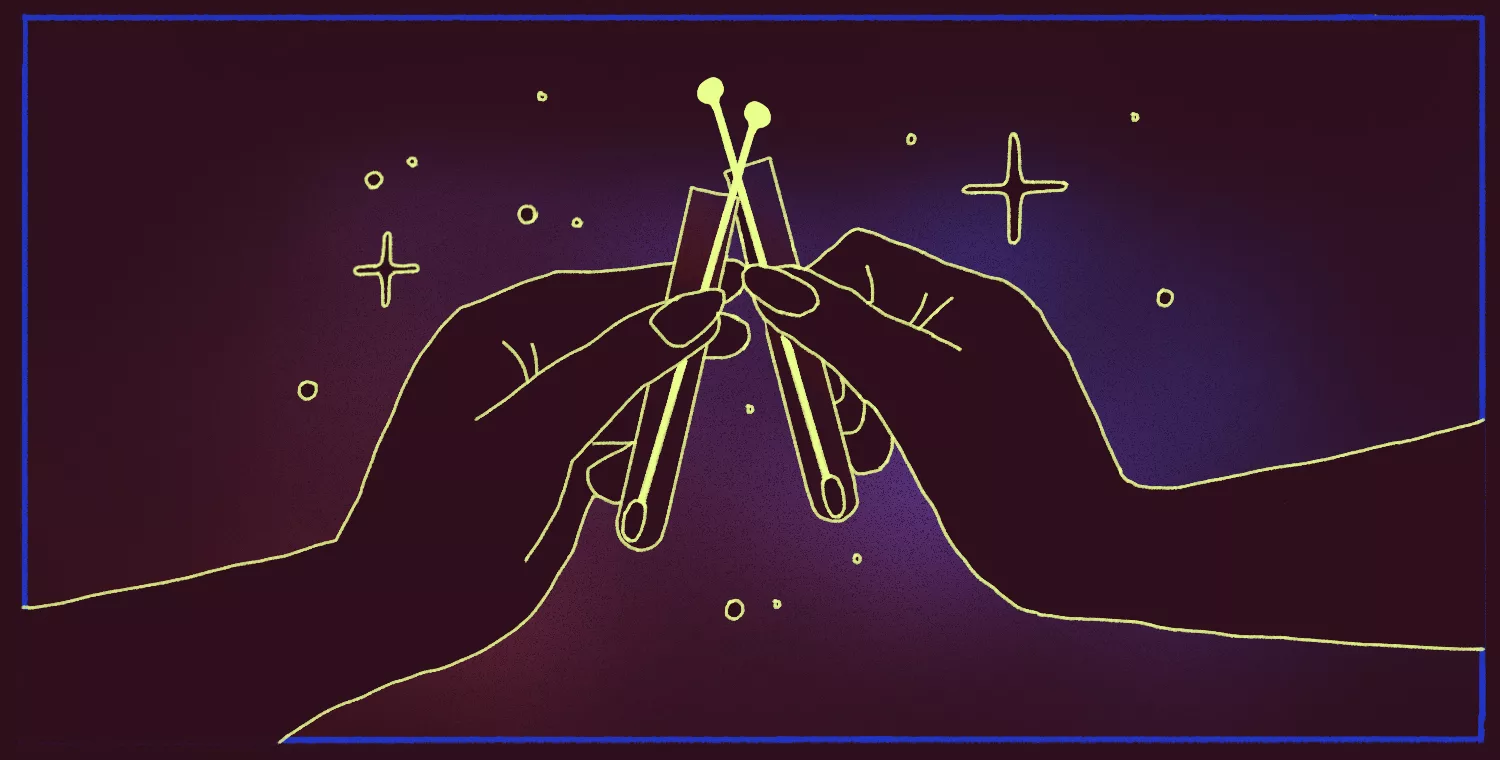Your cart is currently empty!

I Lied During My STBBI Testing Appointment and I’m Far From Being the Only One
About 15 years ago, I set foot in an STBBI testing clinic for the first time. Because the questions they asked me were far more intimidating, intrusive, and awkward than I expected, I piled on the lies. Am I the only one to have done this? Tara Zeagman, a nurse working at Le Dispensaire, a community health centre, and Katy Leclerc, a nurse working at Santé 360, a private clinic, say that I’m not.
“It’s normal to find it stressful to tell a stranger about your sex life on a Tuesday morning in a small, poorly ventilated room, while under fluorescent lights with your legs spread apart,” says Tara, who explains that people who feel comfortable during their testing appointment are rather rare.
No one had prepared me for that appointment. I was only going because my dear mother wanted me to get tested, given that I had been sexually active for a few years. The nurse, about fifty years my senior, had asked me thirty questions about my sexual practices, drug use, and cigarette consumption, assuming that I was comfortable answering them (nope, big mistake!). I literally felt like a suspect being interrogated.
“It’s also completely normal that you don’t want to tell the nurse that you didn’t use a condom that one time you slept with someone you met at a party because both of you were drunk,” she adds.
Even if the purpose of our conversation wasn’t to reassure me, it nonetheless made me feel better about having lied.
“People who come in for testing are often afraid of judgement. It’s our duty to support them. While there are many ways to make someone who finds themselves on the examination table feel comfortable, it helps to tell them that there’s no judgement and that, despite everything, their embarrassment is valid and common,” adds Katy.
The courage to face judgement
Today, I have no shame in discussing my sexual health and practices with medical personnel, but I know for a fact that this is not the case for everyone. I just have to go back a bit. When you’re 16 and come from a fairly modest family and a 56-year-old stranger asks you how many partners you’ve had in the last year or what drugs you take with your friends when you go out at night when your own mom doesn’t know a thing, it can be embarrassing. I was so scared that this information would travel beyond the clinic’s walls, that I lied—even after the nurse had assured me, more than once, that everything was confidential.
“Patients’ body language gives them away. So, we usually know when people lie to us. When that happens, we take the time to remind them that we’re there to help them, not judge them,” says Katy.
Beyond my own experience, I imagine that there’s a multitude of complex situations that can be difficult to explain to a family doctor, especially when they’re of another generation.
For example, where do you find the courage to explain that, even if you identify as a woman, you prefer a urine test rather than a swab because you have a penis? How do you explain that you have been going to swinger parties every week for ten years? Or that you simply can’t afford condoms or other means of protection? There is no single answer to these questions… which explains why dishonesty is often used as a shield against judgement.
Do all STBBI examinations feel like an interrogation?
The answer oscillates between yes and no, but it’s fortunately a lot closer to no than we think. Some clinics have approaches that move away from the standard “interrogation” method that many of us have encountered at some point.
“For us, it’s simple: we don’t ask questions, because we know we’re going to be lied to anyway. We noticed that, when people aren’t asked questions, they tend to tell us more about their sex lives because they have more control over the information than if we were the ones asking,” explains Tara, referring to the Dispensaire’s holistic approach.
Other screening clinics, like Prelib, ask questions online before the appointment, which allows people to be more relaxed once the big day arrives. Most of the time, it’s also possible to skip some of the questions by checking the “I prefer not to answer this question” box, which gives the option not to answer to people who may not feel comfortable disclosing certain aspects of their sex lives.
Can we “prefer not to answer this question” when we are at the clinic?
When I asked Tara and Katy this question, they told me that it was quite okay to communicate our discomfort in answering certain questions. However, people should know that these questions are not random; they have a purpose. These questions allow the healthcare professionals performing your STBBI screening to determine which tests you need. (Because no, not all STBBIs are tested for by default. Only chlamydia and gonorrhea are routinely tested.)
So, if you prefer to not answer certain questions, your STBBI screening might not meet your needs. On the other hand, it’s always possible to ask, before your appointment, to get tested for everything (a complete screening panel) or to be tested for a specific STBBI.
“Patients always have the choice not to answer our questions. Given that a lie or a silence can lead to a misdiagnosis, and therefore, to inadequate treatment, we make sure to convey as much information as possible to our patients,” explains Katy.
For Tara, the more a person is informed, the more they are able to make specific requests, such as getting tested for STBBIs in their rectums/anuses or in their throats.
“The questions focus on so-called risky behaviours, like having multiple partners or having unprotected sex, but in reality, the risk is the virus. If there’s no virus, there’s no risk, regardless of a person’s sexual behaviour,” adds Tara, convinced that the medical staff don’t have to know everything about their patients.
What would you say to people who are afraid of getting tested?
Tara emphasizes that it’s important to allow yourself to set your own boundaries for this medical appointment, the latter of which can scare many people, including myself. One of the ways to do this is to simply mention your discomfort during your visit.
“STBBI screening is stressful, so don’t hesitate to ask someone you trust to go with you. You don’t have to go through it alone,” concludes Tara, who stresses the importance of choosing the right screening clinic and of not hesitating to ask questions before the examination.
“Getting tested for STBBIs doesn’t have to be cold and intimidating. All you need is one good experience to be better equipped to face future screenings,” she adds.
Katy adds that getting tested is an inevitable (almost!) rite of passage for a safe and fulfilling sex life, but, like Tara, she does everything in her power to make patients feel comfortable.
If, despite all this good advice, you still feel the need to lie to medical staff, know that at least two of us have done so and that it’s not serious from a moral point of view, but that it’s a bit more serious from a medical standpoint. You could, for instance, not get tested for something you should have, and therefore, not get diagnosed and treated. If you really don’t want to answer questions about your sex life, you can always go to a clinic that doesn’t ask these types of questions or ask the medical staff about the risks of not being truthful in your answers.
When did you last get tested? Consult the Make an STBBI Screening Appointment page on the DépistaFest’s website or this map of screening sites in Quebec and choose the option that best meets your needs.





